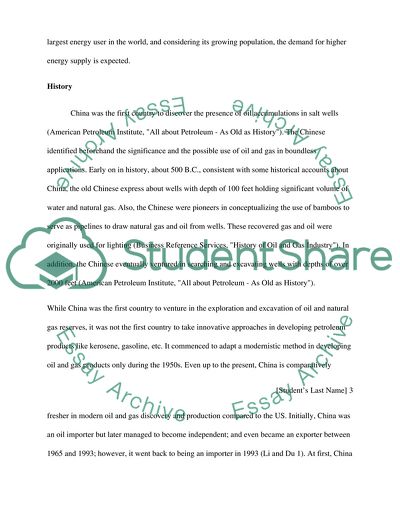Cite this document
(“The History of Oil and Gas in China Essay Example | Topics and Well Written Essays - 1250 words”, n.d.)
The History of Oil and Gas in China Essay Example | Topics and Well Written Essays - 1250 words. Retrieved from https://studentshare.org/engineering-and-construction/1609059-history-of-oil-and-gas-in-china
The History of Oil and Gas in China Essay Example | Topics and Well Written Essays - 1250 words. Retrieved from https://studentshare.org/engineering-and-construction/1609059-history-of-oil-and-gas-in-china
(The History of Oil and Gas in China Essay Example | Topics and Well Written Essays - 1250 Words)
The History of Oil and Gas in China Essay Example | Topics and Well Written Essays - 1250 Words. https://studentshare.org/engineering-and-construction/1609059-history-of-oil-and-gas-in-china.
The History of Oil and Gas in China Essay Example | Topics and Well Written Essays - 1250 Words. https://studentshare.org/engineering-and-construction/1609059-history-of-oil-and-gas-in-china.
“The History of Oil and Gas in China Essay Example | Topics and Well Written Essays - 1250 Words”, n.d. https://studentshare.org/engineering-and-construction/1609059-history-of-oil-and-gas-in-china.


